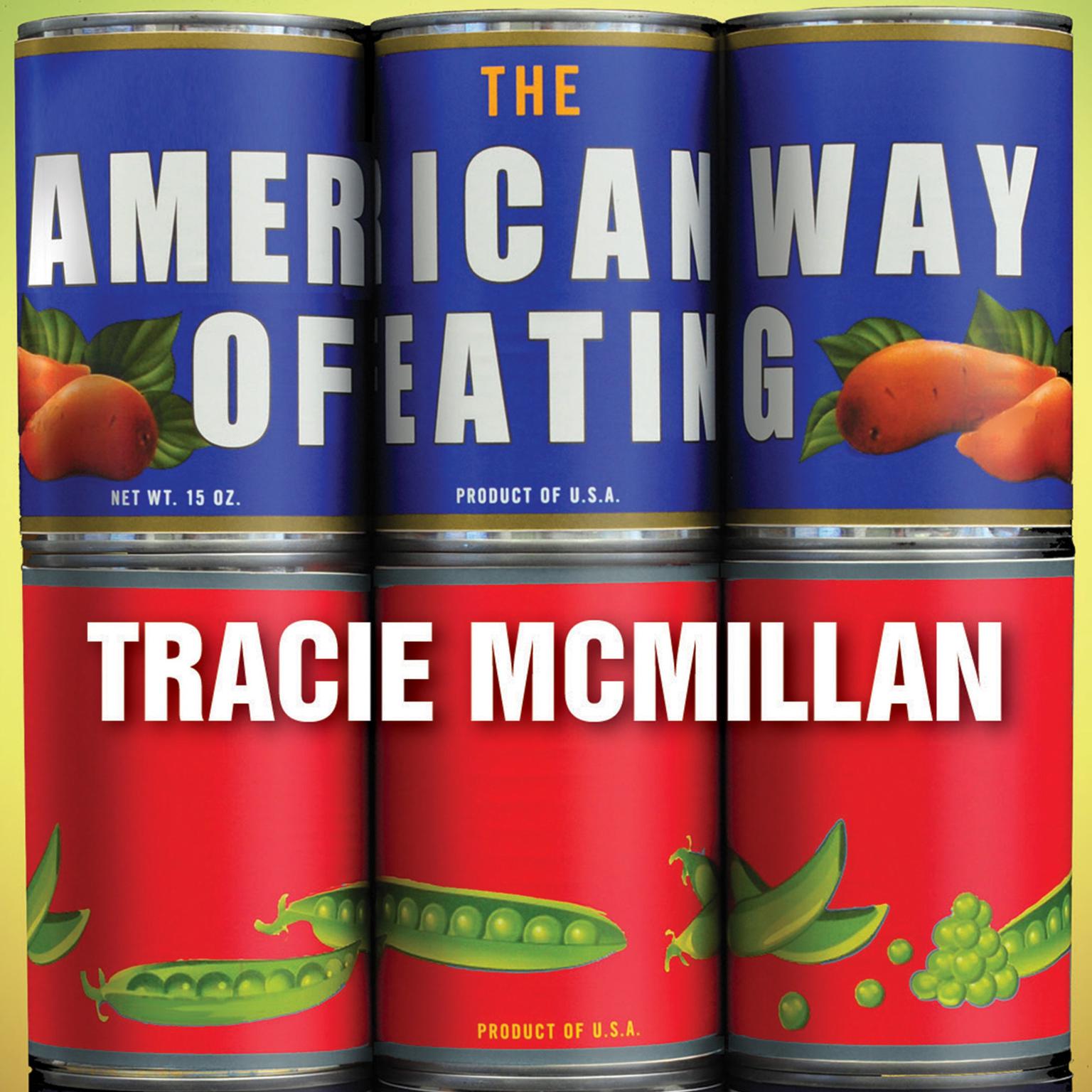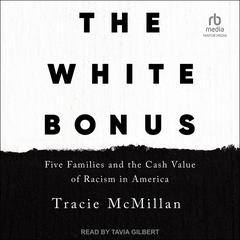 Play Audiobook Sample
Play Audiobook Sample
The American Way of Eating: Undercover at Walmart, Applebee's, Farm Fields and the Dinner Table Audiobook
 Play Audiobook Sample
Play Audiobook Sample
Quick Stats About this Audiobook
Total Audiobook Chapters:
Longest Chapter Length:
Shortest Chapter Length:
Average Chapter Length:
Audiobooks by this Author:
Publisher Description
What if you can't afford nine-dollar tomatoes? That was the question award-winning journalist Tracie McMillan couldn't escape as she watched the debate about America's meals unfold, one that urges us to pay food's true cost—which is to say, pay more. So in 2009 McMillan embarked on a groundbreaking undercover journey to see what it takes to eat well in America. For nearly a year, she worked, ate, and lived alongside the working poor to examine how Americans eat when price matters.
From the fields of California, a Walmart produce aisle outside of Detroit, and the kitchen of a New York City Applebee's, McMillan takes us into the heart of America's meals. With startling intimacy she portrays the lives and food of Mexican garlic crews, Midwestern produce managers, and Caribbean line cooks, while also chronicling her own attempts to live and eat on meager wages. Along the way, she asked the questions still facing America a decade after the declaration of an obesity epidemic: Why do we eat the way we do? And how can we change it? To find out, McMillan goes beyond the food on her plate to examine the national priorities that put it there. With her absorbing blend of riveting narrative and formidable investigative reporting, McMillan takes us from dusty fields to clanging restaurant kitchens, linking her work to the quality of our meals—and always placing her observations in the context of America's approach not just to farms and kitchens but to wages and work.
The surprising answers that McMillan found on her journey have profound implications for our food and agriculture, and also for how we see ourselves as a nation. Through stunning reportage, Tracie McMillan makes the simple case that—city or country, rich or poor—everyone wants good food. Fearlessly reported and beautifully written, The American Way of Eating goes beyond statistics and culture wars to deliver a book that is fiercely intelligent and compulsively readable. Talking about dinner will never be the same again.
Download and start listening now!
"fairly informative book on how americans eat, explaining the infrastructure of distribution, growing, selling, munching. author illustrates (and learns a lot) by working "under cover" at walmart (twice), in the fields of california, picking grapes, sorting peaches, and harvesting/cutting garlic, and at applebees in nyc. one interesting thing, french folks spend about twice the percentage on food a year as usaers, but usaers spend about twice as much as french on healthcare, childcare, education, and transportation. or as walmart says, Save Money.Live Better! good book, lots of info and fairly entertaining stories, a Raj Patel for the middle class Stuffed And Starved: Markets, Power And The Hidden Battle For The World Food System"
— Tuck (4 out of 5 stars)
Quotes
-
A worthy book.
— Booklist
The American Way of Eating Listener Reviews
-
" Answered some of the questions I have had. Style seems to lack flow, however. "
— Karen, 1/30/2014 -
" I enjoyed this book because it allowed me to see inside the food industry in America. The author worked picking fruit and vegetables in California, as a produce worker at Walmart in Detroit, and as as a plate checker (my words since I can't remember the term) at Applebees in New York. In each job she tried to live on the wages she made and live in the area where her coworkers lived. Needless to say, this was very difficult. Tracie McMillan's many footnotes gave plenty of details about the American Food Industry, past and present. She convinced me of her premise, that Americans find it difficult to eat healthy, not because they do not want to, but because the food industry and the working class stuggle to make a living make it hard to do so. "
— Diane, 1/22/2014 -
" I feel like I've read a lot of books about food, but this was the first one that followed mostly produce and from the point of view of the workers, instead of just some bystander. The author becomes a farm worker picking vegetables, works produce at Walmart, and then preps meals at Applebee's. She makes friends and learns a little bit of the reality these people live with, you can work around food all day long and yet not make enough or have enough time to really be able to eat good food yourself. I feel very lucky to be able to feed myself well and I only hope the efforts being made today will enable more people to do so in the future, because like water, education, and healthcare, food access should be just as much a right. "
— Elizabeth, 1/13/2014 -
" McMillan went into writing this with full knowledge of the weaknesses of Barbara Ehrenreich's similar experiment--that a white, American, college-educated woman working incognito had options and resources that would never really allow her to experience what working at the poverty line actually means. With that caveat, this is an interesting book--McMillan works in grape and garlic fields, stocking produce at Walmart and as an expediter at Applebees, and while the systemic organization is interesting (Applebee's portioning and ordering system, WalMart's stocking rules), what is more useful is a corrective to the easy replies to poor people and bad food--people ARE more likely to eat .99 Doritos if they're ravenous and exhausted, or don't have easy access to a clean kitchen, public transportation often leaves shift workers when are where they don't want to be, making it harder to shop at a reasonable market (the WIC-liquor store rules are also fascinating), and the leisurely "white people" farmer's market experience, even if they do have a wireless EBT card reader, is not what these shoppers enjoy. Along the way, McMillan does seem blinded by middle-class mores (privacy, independence, very suburban standards of clean) to the friendly coworkers who try to teach her to more successfully live this way through communal cooking, small scale networks of lending and sharing and living with a huge number of other people, none of which she really figures out how to reciprocate (they'd like her to use being white and a citizen more assertively to help THEM, but she responds by sort of practicing English with them). "
— Margaret, 1/12/2014 -
" You won't want to eat at Applebees again. "
— Heather, 1/10/2014 -
" Very informative. Good quick read. "
— 3littlebyrds, 12/25/2013 -
" The premise is similar to Nickled and Dimed. It's enlightening how the food workers manage to exist on so little income yet welcome friends into their lives and share what little they have. No surprizes in this story but I'm glad I read it. "
— Gay, 12/8/2013 -
" I really did not enjoy this book. It felt like a young naive poorly written version of Nickel and Dimed. "
— Kate, 11/7/2013 -
" Interesting but I didn't feel I know what to do with the information I gained. "
— Barb, 11/7/2013 -
" Somewhere between 2.5 and 3. Muddled and lacking focus. I'd be surprised it was nominated for a James Beard award, but the topic is hip right now. Readable if you're into being outraged over things you already know thanks to Michael Pollen and Barbara Ehrenreich. "
— Erin, 7/13/2013 -
" Well, now I know why I never eat out at restaurants or shop at WalMart. Ms. McMillan's book will open many eyes. The story is very well done when she describes her co-workers, but becomes a little bogged down when she gets into facts. The reading becomes pretty dry, but overall, a fine book. "
— Diana, 11/27/2012 -
" Very interesting read. The author spreads our her writing about her personal experiences of working among the food chain with information, statistics, and history of the american food chain from growing to eating. A definite recommend. "
— Courtney, 11/20/2012 -
" The book had some interesting aspects to make me think about how produce makes it from the field to my plate, but honestly it didn't hold my interest over all and I ended up skimming large chunks of it. "
— Meagan, 11/18/2012 -
" Moral of this story: Never waste any food whatsoever (because it's almost inconceivable how much effort goes into growing, harvesting, and shipping it), and only ever order fried or grilled items from chain restaurants. "
— Siobhan, 7/1/2012 -
" Interesting information about the food-cycle in the United States - migrant farm work, Walmart grocery shopping, and working at Applebees. The author wove factual and historical information into her personal experiences at each of the above locations. "
— Amy, 6/11/2012
About Hillary Huber
Hillary Huber, a Los Angeles–based voice talent with hundreds of commercials and promos under her belt, was bitten by the audiobook bug in 2005. She now records books on a regular basis and has been nominated for several Audie Awards and won numerous Earphones Awards.




